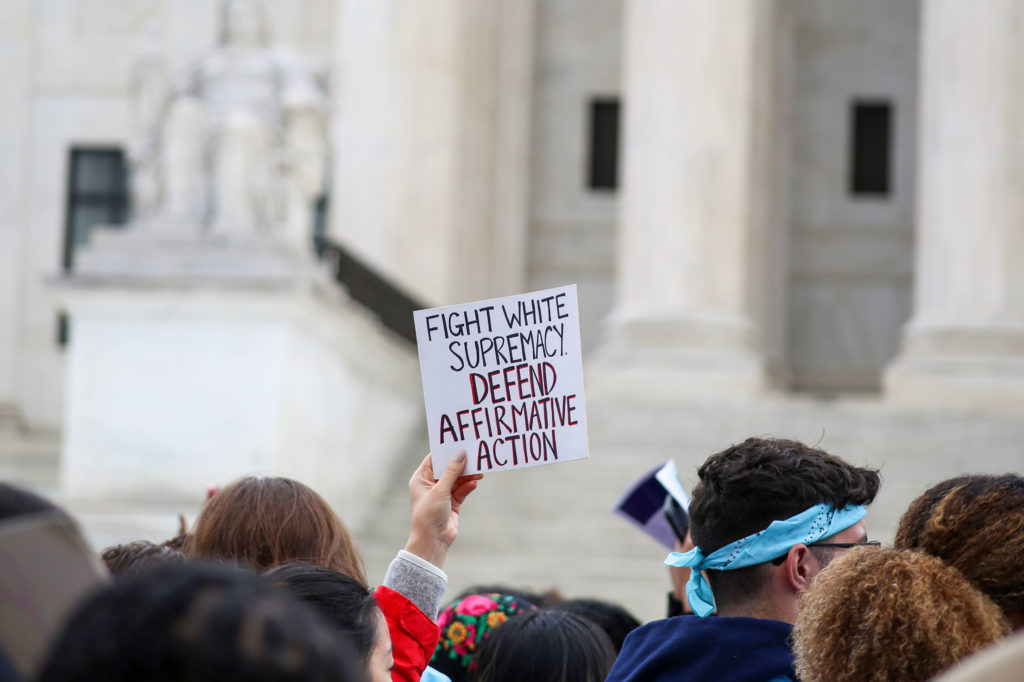The Supreme Court struck down the consideration of race in college admissions Thursday, a decision that will likely have long-term effects on the demographics of higher education.
The ruling reverses Grutter v. Bollinger — a 2003 case in which the Supreme Court ruled that consideration of minority status is not harmful to nonminorities — and bans race as a factor in college admissions, rejecting the policy commonly known as affirmative action. At GW, officials said the University’s race-conscious admissions policy played a “pivotal” role in fostering diversity at GW, but they will need to update admissions policies to abide by the ruling, which states that affirmative action in higher education admissions violates the equal protection clause in the 14th Amendment.
Students for Fair Admissions, an organization that represents students alleging discriminatory admissions practices due to race, filed a lawsuit against Harvard College in 2014, claiming that the university favored white applicants over Asian applicants, which would violate the Title VI of the Civil Rights Act of 1964.
Justices heard oral arguments over the consideration of race in admissions at Harvard College and the University of North Carolina in October.
Interim University President Mark Wrighton and incoming University President Ellen Granberg said in a joint email to the University community that they are “deeply disappointed” by the Supreme Court’s decision to end race-conscious admissions because building a diverse community will be more difficult without the ability to factor race during the admissions process. They said they are still committed to diversifying the GW community.
They said officials will consider “any necessary” adjustments to current admissions practices to abide by the ban on race-conscious admissions.
“A diverse student body is essential to our mission, and it is a key element of a high-quality education that best prepares our students to succeed, thrive, and lead locally and globally,” they said.
Provost Chris Bracey said in a release that he is disappointed in the Supreme Court’s decision to restrict race-conscious admissions as a constitutional lawyer because diversity enables the GW community to produce “impactful” research. He said a diverse staff, faculty and student body challenge one another to engage with numerous perspectives.
Deans from GW’s 10 schools and colleges said they will work to maintain diversity and inclusivity in their programs in the release.
“The court’s ruling creates a new impediment to our ability to foster academic excellence, provide a well-rounded student experience and prepare our students to be leaders of a rapidly changing world,” Bracey said in the release.
More than 100 protesters rallied in front of the Supreme Court in November to show their support of affirmative action policies and said race-based college admissions have increased minority enrollment in higher education institutions, which enabled economic progress for marginalized groups.
Supreme Court Justice and former GW lecturer Clarence Thomas wrote a concurring opinion stating that race-conscious admissions discriminated against applicants.
Justice Sotomayor, one of the bench’s three liberal justices, wrote the dissenting opinion, stating the decision “cements a superficial rule of colorblindness as a constitutional principle in an endemically segregated society where race has always mattered and continues to matter.”










